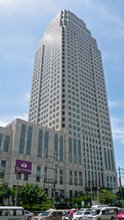Thailand's junta-installed government is seeking local companies and domestic projects to contribute an increasing portion of ``prudent'' ongoing economic growth of about 4 percent, Deputy Prime Minister Kosit Panpiemras said.
``We are now looking for long term balanced growth,'' he said in an interview in Bangkok yesterday. ``We have no intentions to stimulate growth beyond a certain prudent limit. About 4 percent.''
Thailand's government, installed after a Sept. 19 coup, is spending more and encouraging interest rate cuts to revive consumer and investor confidence that's been battered by a bungled attempt to impose capital controls, policy changes and amid mounting public protests. The economy may grow as little as 3.8 percent this year, the slowest pace in six years, after expanding 5 percent in 2006.
The government is ``not anti-foreign investment,'' Kosit said. Still, it wants Thai companies and domestic projects to contribute an increasing portion of economic growth over foreign-driven expansion, he said. Growth under the government of ousted Prime Minister Thaksin Shinawatra was too reliant on foreign direct investment, he said.
``The problem is that particular speed of growth was generated probably wholly by international factors,'' Kosit said. ``Going down the road, we need to add domestic contributions, which we are doing now. Our growth would be more balanced going forward.''
`Consistent'
Thailand's economy since the coup has remained ``consistent,'' Kosit said, pointing to interest rates which have been cut to 3.5 percent, inflation which slowed to 1.8 percent in April, and a ``more stable'' currency.
The Bank of Thailand has cut its key interest rate four times this year by 150 basis points, the steepest string of reductions since adopting inflation targeting in 2000. Inflation in April was the lowest in three years. The baht has added 3.2 percent per dollar this year in onshore trading, the fifth most among 16 Asia-Pacific currencies tracked by Bloomberg.
Current account surpluses for the past eight months ``suggest weakness on the domestic side,'' Kosit said, but there are also ``strong'' capital inflows.
``We inherited from Thaksin an economy growing a little bit more than four percent,'' he said. ``I don't think we have taken that back at all. The economy is growing at about that speed.''
Confidence
Consumer and investor confidence have fallen to near five- year lows amid political and policy concerns. Demand for Bangkok's office space in 2006 fell to its lowest level in seven years, according to CB Richard Ellis (Thailand) Co. Industrial land sales have plunged, according to Amata Corp., Thailand's biggest developer of sites for factories.
The Bank of Thailand introduced capital controls in December to discourage foreigners buying the baht after the currency surged 16 percent against the dollar. It was forced to reverse part of the policy when the stock market plunged the most in 16 years when it was imposed.
The government is toughening laws on foreign ownership and expansion by local units of retailers Tesco Plc and Carrefour SA, among others. Shareholder structures, as well as deals and contracts involving the government ousted by the September coup, are also being probed.
``A lot of these things alarm people, but for those who know the country, they are not alarmed that much,'' Kosit said.
`Balance'
The government is preparing a ``more balanced'' economy for the next elected government, Kosit said. Surayud Chulanont, who became Thailand's prime minister in October after Thaksin was ousted by the coup, pledged a referendum on a new constitution in September to pave the way for national elections in December.
Slower economic growth will be ``temporary'' and pick up from the third quarter as a ``backlog'' of Thai companies including PTT Pcl, Thailand's biggest company, and Siam Cement Pcl, the nation's No. 3, begin spending on factories and building new ones, Kosit said. Projects worth about 300 billion baht were delayed for about six months to allow the government to develop an environmental management plan, he said.
PTT, the state-controlled energy company, said this week it plans to spend 10.6 billion baht ($306 million) to cut pollution at its plants and refineries in the nation's biggest industrial area in Rayong province.
The economy will also be boosted by building two mass transit lines, with bids for the first expected to be called in August, Kosit said. Cabinet on May 22 approved the 15-kilometer (9.3-mile) railway project worth 13 billion baht ($376 million).


No comments:
Post a Comment